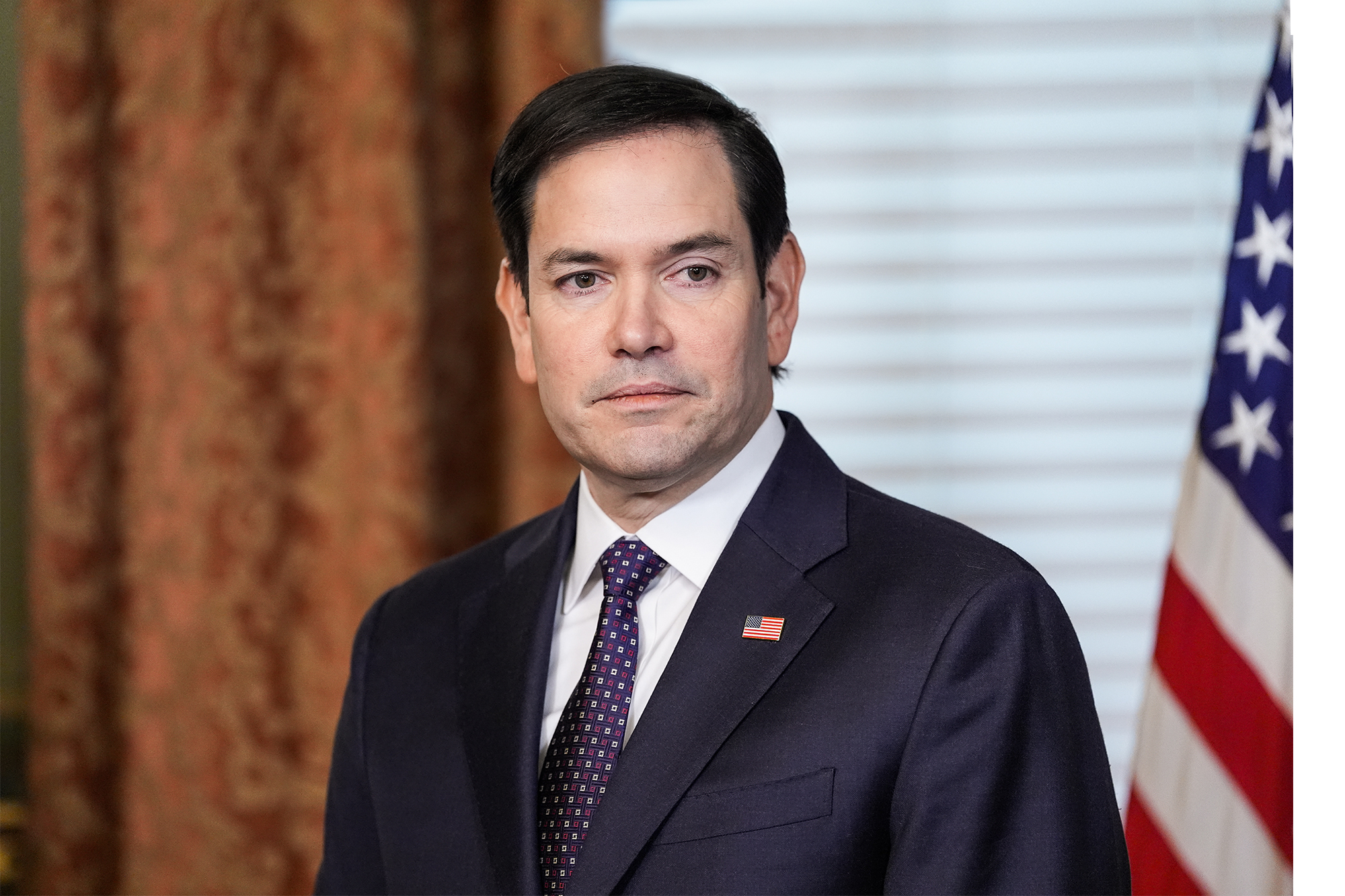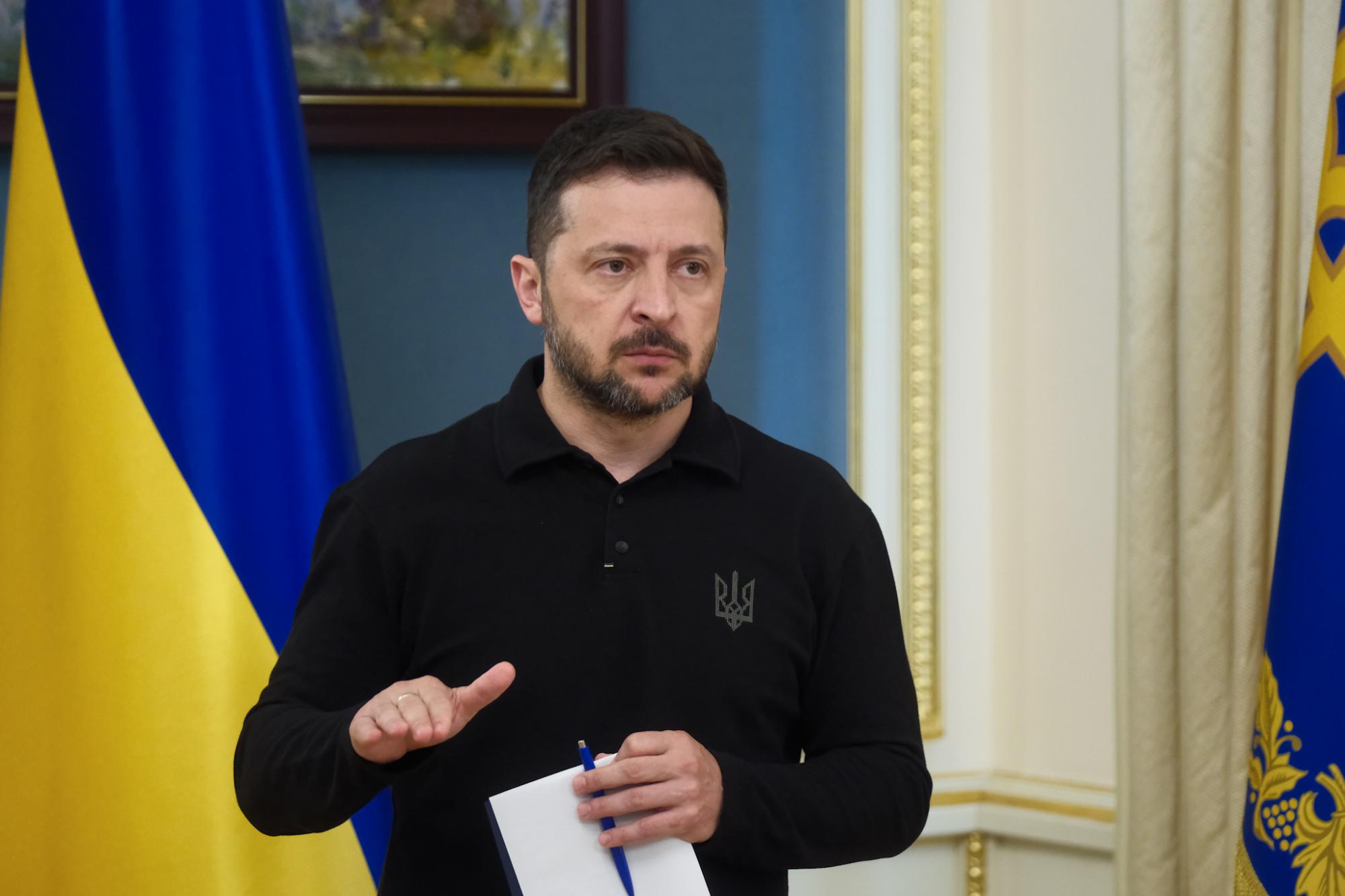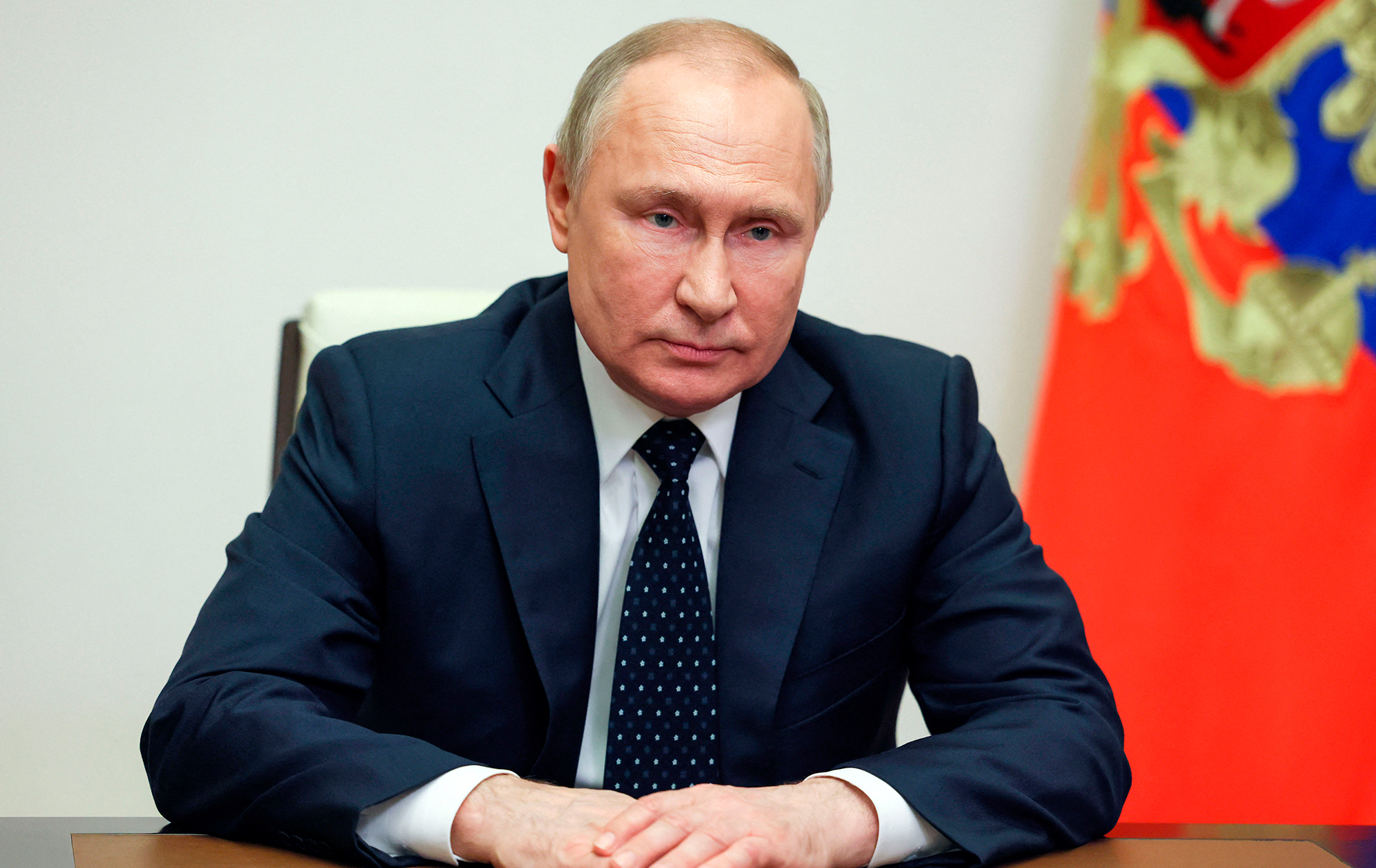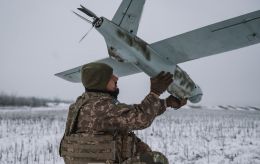Talks on Ukraine: What Trump, Zelenskyy, and Putin say about ending war
 Photo: President of Ukraine Volodymyr Zelenskyy and US President Donald Trump (Getty Images)
Photo: President of Ukraine Volodymyr Zelenskyy and US President Donald Trump (Getty Images)
To initiate peace talks, Ukraine insists on a complete ceasefire, while Russia, for the first time, allows the possibility of direct dialogue with Kyiv. At the same time, the United States advocates for freezing the conflict and believes that both sides should be prepared for territorial compromises.
RBC-Ukraine has compiled the latest statements from Trump, Zelenskyy, Putin, and their teams regarding the negotiation process in the material below.
Takeaways
-
What conditions is the US putting forward in talks on Ukraine?
-
Under what circumstances could Washington withdraw from the negotiations?
-
What are Ukraine’s demands?
-
Are bilateral talks between Moscow and Kyiv possible?
US position: From controversial peace proposals to threats of pulling out of talks
US President Donald Trump has repeatedly stated his intention to quickly end the war in Ukraine, presenting himself as a mediator in the negotiations. Just a few days ago, he said that his efforts to organize a peace deal were reaching a "culmination."
Trump expressed hope that Russia and Ukraine could reach an agreement soon and emphasized that the US had held "very good meetings" with both sides of the conflict.
Speaking to journalists at the White House on Monday, April 21, Trump promised to share details about the peace process within three days. That same day, it was reported that preparations were underway for negotiations in London on April 23, involving representatives from the US, Ukraine, and Europe.
The talks were expected to focus on achieving a full ceasefire. According to media reports, Kyiv was also expected to respond to Washington’s "final" proposal for reaching peace.
Details of this proposal, published ahead of the meeting by Western media citing sources in the White House, sparked controversy.
According to reports from several outlets, Trump proposed freezing the conflict along the current front line, legally recognizing Crimea as Russian, effectively acknowledging all other occupied Ukrainian territories, and lifting sanctions on Russia.
In return, Ukraine was offered "reliable security guarantees" involving a special group of European countries, as well as compensation and reconstruction assistance.
More on the US conditions for ending the war can be found in the Peace on US terms? What’s behind the 'fair proposal' for Ukraine and Russia material.
However, the talks in London did not take place. The UK canceled the meeting on the day it was scheduled, and it was revealed that Secretary of State Marco Rubio, who was supposed to represent the US, would not be attending. According to official statements from the State Department, Rubio had to cancel the trip due to "logistical issues in the schedule."
Meanwhile, CNN reported that the Secretary changed his mind about traveling to London after President Volodymyr Zelenskyy said Ukraine would not recognize Crimea as Russian.

Photo: US Secretary of State Marco Rubio (Getty Images)
Last week, Marco Rubio made a strong statement about a possible US withdrawal from peace talks on Ukraine. Soon after, his remarks were confirmed by US President Donald Trump. Trump emphasized that if the goal of ending the war proves too difficult due to the positions of either Russia or Ukraine, the US would step back from its role as mediator.
"Quickly, we want to get it done. Now if for some reason one of the two parties makes it very difficult, we're just going to say, 'you're foolish, you're fools, you're horrible people, and we're going to just take a pass. But hopefully we won't have to do that," said the US president.
Today, US Vice President J.D. Vance also allowed for the possibility of the US pulling out of the talks. According to him, "Ukraine and Russia must agree to the US-proposed peace offer," or else, he said, "Washington will withdraw from the negotiations."
Vance repeated previously reported points in the media regarding freezing the conflict and the potential for both Ukraine and Russia to give up certain territories.
Marco Rubio, who skipped today’s talks in London, also made a statement. He said the US hopes for a swift agreement between Russia and Ukraine, though no timeline has been set.
Rubio believes there is no military solution to the conflict and that neither side will achieve all of its goals. The US is trying to understand the positions of both parties, but if the gap between them is too wide, peace will not be possible. The decision lies with Kyiv and Moscow.
"Hopefully, we can be successful, but ultimately it’s not up to us. It’s up to Russia, and it’s up to Ukraine. They have to make the decision that they’re willing to move closer to one another, and we need to start to see progress," Rubio said.
Ukraine's conditions for peace negotiations
In the negotiation process, Ukraine's key priority remains reaching an agreement for a complete ceasefire, which is seen as the starting point for further steps towards a peaceful resolution.
"Ukraine wants a quick, just peace for itself, but it requires an unconditional ceasefire as the first step toward this," said President Volodymyr Zelenskyy.
He emphasized Ukraine's readiness for an immediate and full ceasefire, at least concerning civilian objects.
According to Zelenskyy, this proposal aligns with the US initiative from March 11 for a full truce and is only possible if Russia halts the killings.
"This must be the joint first priority with all partners — saving lives. Ukraine has repeatedly stated that it does not exclude any formats that could lead to a ceasefire and, ultimately, to real peace. Stopping the killings is job number one," the president added.

Photo: Volodymyr Zelenskyy seeks a complete ceasefire to start negotiations (Vitalii Nosach, RBC-Ukraine)
Commenting on media reports about the peace proposals from the US, particularly regarding Crimea and NATO membership, Zelenskyy stated that Ukraine does not legally recognize the occupation of Crimea, "This is our territory, the territory of the people of Ukraine. We have nothing to discuss on this matter – it is beyond our Constitution."
Regarding NATO membership, the president added that only the member countries of the Alliance can veto Ukraine's accession.
"Is there a dialogue between the US and Russia about Ukraine joining NATO? I am sure there is. If they want to confirm that Ukraine rejects NATO, I have a question: what’s the alternative? What are the security guarantees?" he noted.
Zelenskyy believes that if Ukraine rejects NATO, the US should provide equivalent security guarantees.
Today, against the backdrop of the cancellation of the high-level meeting in London, First Vice Prime Minister and Minister of Economy Yuliia Svyrydenko stated that Ukraine is ready for negotiations but will not capitulate, will not accept a frozen conflict, and will never recognize Crimea's occupation.
"Ukraine is ready for negotiations, but not for capitulation. There should be no agreement that would give Russia a stronger foundation to regroup and return with even greater brutality," Svyrydenko emphasized.
'Bilateral negotiations': What the Kremlin says and how Kyiv reacts
For the first time since the beginning of Russia's full-scale invasion of Ukraine, Kremlin leader Vladimir Putin has suggested the possibility of "bilateral negotiations."
This is how the Russian President responded to Ukrainian President Volodymyr Zelenskyy's proposal to cease strikes on civilian infrastructure for 30 days.
Putin stated that the proposal "needs to be looked into" and, for discussing the issue, he did not rule out negotiations with Kyiv.
"We need to look into this (the proposal for a truce – ed.), it’s all subject to careful consideration. Perhaps, through bilateral means, as a result of dialogue, we do not rule that out," said the head of Russia.

Photo: Vladimir Putin allowed for bilateral negotiations (Getty Images)
In response, Ukrainian President Volodymyr Zelenskyy stated that Ukraine is ready for negotiations in "any format," but only after a complete ceasefire.
"As for any negotiations, where are the results? If the Russians are ready for a complete ceasefire, after the complete ceasefire, with an understanding of the timeframe, we are ready for any format of negotiations with them," Zelenskyy added.
He also expressed the belief that the Russians are afraid to hold direct talks with Ukraine, despite the Kremlin's hints.
According to Zelenskyy, these signals could either indicate a fear that the US may exit the negotiation process or, conversely, a desire for Washington to stop participating in it.
Earlier, there was media information that Putin, in an effort to reach a peace agreement, expressed readiness to halt the war along the front line.
As reported by the Financial Times, the Kremlin leader told US President’s special envoy Steve Witkoff that Russia could abandon its claims to Ukrainian-controlled parts of Zaporizhzhia, Kherson, Donetsk, and Luhansk regions as part of an agreement, but would insist on Ukraine’s neutrality, regime change, and demilitarization.
However, Kremlin spokesperson Dmitry Peskov called the information in the FT publication fake and later issued a statement that Russia demands the withdrawal of Ukrainian forces from the four regions. According to him, fulfilling this demand would allegedly "immediately end the war."
Peskov also emphasized that Moscow wants Ukraine to maintain a neutral status, refraining from joining NATO, and to "recognize the reality" regarding the territorial issues.
US special envoy Steve Witkoff will travel to Moscow again at the end of this week to continue negotiations with Kremlin leader Vladimir Putin.
Sources: materials from Financial Times, Bloomberg, CNN, The Free Press, Axios, as well as statements from heads of state and government representatives.

